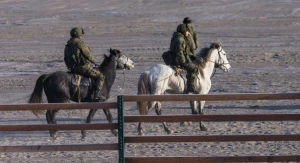
Elections and large-scale war
During large-scale hostilities, it is impossible to implement at least two of the five existing constitutional principles
It is important to emphasize that after the Second World War, the democratic world has had general (basic) principles of electoral law that they agreed to in international acts - the Universal Declaration of Human Rights of 1948, the International Covenant on Civil and Political Rights of 1966, the (European) Convention for the Protection of Human Rights and Fundamental Freedoms of 1950.
Usually, these principles are also enshrined, and sometimes expanded, in the constitutions of sovereign states around the world.
For example, the principle of universal suffrage provides for the possibility for all voters to secure the right to vote, including IDPs and refugees.
The principle of free elections involves two important elements: the possibility for a voter to freely form his or her political will; and the possibility for a voter to freely exercise his or her political will.
Without coercion, deception, bribery, and so on.
“Therefore, during large-scale hostilities, it is impossible to implement these two principles (out of the five existing constitutional principles).”
So, a process that is not based on the basic principles of electoral law is not an election.
As a result, there will be questions about the legitimacy (recognition) of these elections both inside and outside the country.
I am not touching separately on other, no less important risks, in particular for the unity of society during hypothetical “elections” in the context of Russia's active external aggression.
But it would seem that these are self-evident.
About the author. Andriy Mahera, lawyer, former deputy head of the Central Election Commission.
The editors do not always share the opinions expressed by the blog authors.
- News













































